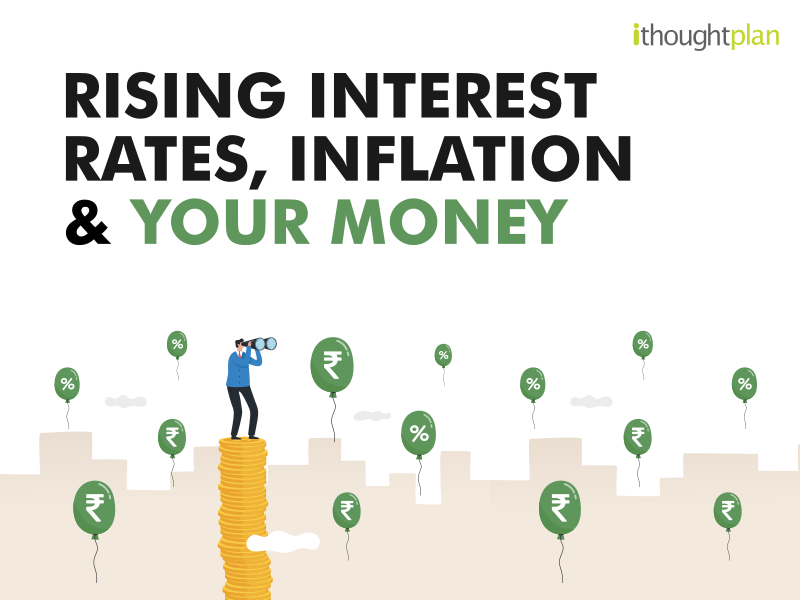
What is inflation?
Inflation represents how much more expensive the goods and/or services have become over a specified period. It is a broad measure which indicates the overall increase in prices of consumer goods or increase in a country’s cost of living. But, it can also be calculated for any specific item. You could observe this phenomenon when you compare the change in prices of vegetables, parlour & spa treatments, groceries, stationery etc. over the years.
Recently, the US has recorded a staggering 8.5% inflation & India has recorded a worrying 6.95% inflation.
How does inflation affect your everyday life?
Inflation eats away at your money slowly over time. The best way to notice how inflation has impacted your money is to compare your grocery bills from the last few years & now. For example, in 2010, a 100 gm Colgate toothpaste cost around ₹ 28 in 2010. Today, it costs about ₹ 63. That’s a whopping 125% increase in price. Similarly, oil, pulses, millets, rice, etc., have seen an upward trend in the past.
Impact on Medical Expenses:
Inflation has an impact on your medical expenses as well. Hospital consumable costs, Hospital staff and consultant’s fees, and expenses such as medicines, equipment, etc., have risen by at least 10% YOY (year-on-year) due to inflation.
Consumer inflation plays an important role in ascertaining medical treatment costs. It is the rate of inflation based on the consumer price index (CPI). The CPI tracks the change in prices of goods & services.
While medical inflation is a number that is ever rising, consumer inflation adds to the drama. No better time to review & top up your health insurance!
Impact on Cost of Education:
The impact of inflation is seen even on education costs. Remember the fees you paid for your education? Compare it with a toddler’s school fee paid today. You will be surprised how much inflation has impacted the costs. While we may not be able to compare the fee charged by private schools, we know that education inflation has been around 9-10% in India.
High inflation means higher interest rates!
Earlier this month (June 2022), the Federal Reserve announced the largest interest rate hike in 28 years as the global economy is struggling to take control of sky-rocketing prices and is tackling the fear of recession.
The Reserve Bank increases the interest rates to cope with inflation. When it costs more to buy a home or car, the economy slows down. This leads to people spending lesser which in turn keeps the cost of goods stable and curtails inflation.
The Effects of Higher Interest Rates
An interest rate hike would make your borrowing costlier. It is essential to make informed decisions while taking on loans during these situations. Whether you plan to buy a car or home, or other goods, consulting a financial advisor is the right way forward.
The Way Forward
Investing in the right asset classes is the key. An advisor will help guide your portfolio in the right direction & help you navigate through difficult market situations with ease.
-
-
- Align your short-term goals to investments in liquid funds, ultra-short-term funds & time deposits. If you have locked yourself into FDs, check whether they need to be reviewed by your advisor.
- Build an emergency fund & prepare for the rainy days. Have at least SIX months of your salary parked in a short-term fund.
- Revisit & reassess the inflation rates & assumptions used in your financial plan for your long-term goals. Eg: Medical Reserve, education corpus, retirement. Rework the figures with your advisor & see if you need to invest more to reach the goals
- Diversify your investments into different baskets like equity, commodities like gold & silver, and debt funds & bonds.
- Lastly, one of the best things you can do right now is to pause and analyse how much & where we are spending our money. Maybe cutting out some unnecessary expenses will give you the room to accommodate rising prices & costs!
-
Need help with your financial plan & portfolio? We are here to help! Get in touch now!